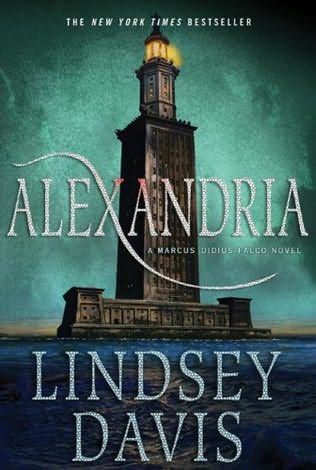The first of these novels is by Robert Harris, and was recommended to me by two of my Aussie friends John and Gillian Painter of Canberra. It is entitled Pompeii and it focuses on the singular story line of the ‘aquarius’ that is, the Emperor’s man in charge of water (all Italian water belonged to the Emperor), and also in charge of aqueducts, reservoirs and the like. Marcus Attilius Primus is sent to Pompeii to deal with a break in the water systems feeding Herculaneum, Pompeii and other cities on the bay of Neapolis (Naples) only the week before the famous eruption of Mt. Vesuvius in A.D. 79. It’s a compelling read, and Robert Harris has several other novels about that period in Roman history as well which can be commended. Harris follows a single plot line relentlessly in this novel, and does an excellent job of building up the tension and the sense of impending doom in the story line while enlightening us as to just how crucial water was and is, and how the aqueduct system of the Romans changed the world, and was one of most brilliant inventions in all of antiquity.
The second novel is yet another entry in Lindsey Davis’ long running series of novels featuring her sleuth Marcu Didius Falco and his intrepid patrician wife, Helena Justina. This one is entitled Alexandria, for the very good reason that it is set in that famous ancient city, and is full of the same usual humour and high jinx we have come to expect of her novels. Falco gets himself and his family in and out of various sorts of trouble all the while solving mysteries— in this case the mystery of the murder of Theon, the librarian at the most famous library in the ancient world. It was a library which boasted holdings of about a half a million scrolls and claimed to have every significant work ever written in antiquity. Now if we could only find that motherlode as a result of the recent archaeological work in Alexandria! Then we would really have something to talk about. Unlike Harris’ novel, Alexandria not merely informs, it entertains with its humour, and this sets it apart from other novel series on ancient Rome such as those by Colleen McCullough or Stephen Saylor.
There is much that can be learned from good historical fiction about the NT era without breaking a cerebral artery or even breaking a sweat, and these two novels, both of which clock in at just over 300 pages, are easy and compelling reads. As I have been writing my series of archaeological thrillers (see the recent post on my Papias and the Mysterious Menorah) these are the sort of writers I study to gain more skill in plotting, characterization, description and the like.


